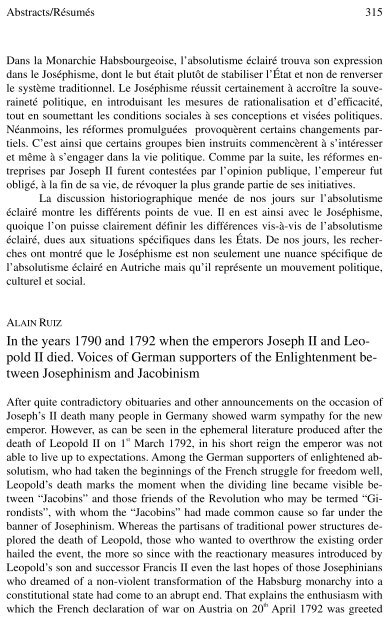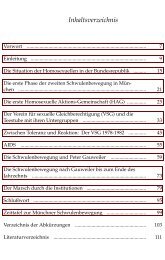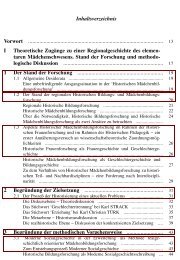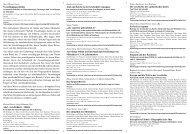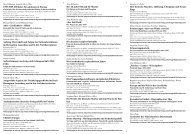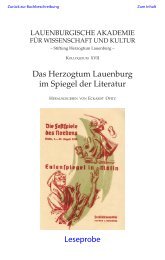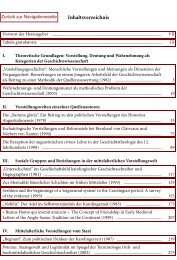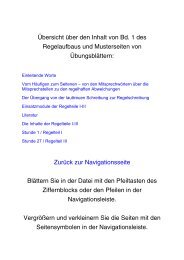Inhaltsverzeichnis/Table des matières - Dr. Dieter Winkler Verlag
Inhaltsverzeichnis/Table des matières - Dr. Dieter Winkler Verlag
Inhaltsverzeichnis/Table des matières - Dr. Dieter Winkler Verlag
Erfolgreiche ePaper selbst erstellen
Machen Sie aus Ihren PDF Publikationen ein blätterbares Flipbook mit unserer einzigartigen Google optimierten e-Paper Software.
Abstracts/Résumés 315<br />
Dans la Monarchie Habsbourgeoise, l’absolutisme éclairé trouva son expression<br />
dans le Joséphisme, dont le but était plutôt de stabiliser l’État et non de renverser<br />
le système traditionnel. Le Joséphisme réussit certainement à accroître la souveraineté<br />
politique, en introduisant les mesures de rationalisation et d’efficacité,<br />
tout en soumettant les conditions sociales à ses conceptions et visées politiques.<br />
Néanmoins, les réformes promulguées provoquèrent certains changements partiels.<br />
C’est ainsi que certains groupes bien instruits commencèrent à s’intéresser<br />
et même à s’engager dans la vie politique. Comme par la suite, les réformes entreprises<br />
par Joseph II furent contestées par l’opinion publique, l’empereur fut<br />
obligé, à la fin de sa vie, de révoquer la plus grande partie de ses initiatives.<br />
La discussion historiographique menée de nos jours sur l’absolutisme<br />
éclairé montre les différents points de vue. Il en est ainsi avec le Joséphisme,<br />
quoique l’on puisse clairement définir les différences vis-à-vis de l’absolutisme<br />
éclairé, dues aux situations spécifiques dans les États. De nos jours, les recherches<br />
ont montré que le Joséphisme est non seulement une nuance spécifique de<br />
l’absolutisme éclairé en Autriche mais qu’il représente un mouvement politique,<br />
culturel et social.<br />
ALAIN RUIZ<br />
In the years 1790 and 1792 when the emperors Joseph II and Leopold<br />
II died. Voices of German supporters of the Enlightenment between<br />
Josephinism and Jacobinism<br />
After quite contradictory obituaries and other announcements on the occasion of<br />
Joseph’s II death many people in Germany showed warm sympathy for the new<br />
emperor. However, as can be seen in the ephemeral literature produced after the<br />
death of Leopold II on 1 st<br />
March 1792, in his short reign the emperor was not<br />
able to live up to expectations. Among the German supporters of enlightened absolutism,<br />
who had taken the beginnings of the French struggle for freedom well,<br />
Leopold’s death marks the moment when the dividing line became visible between<br />
“Jacobins” and those friends of the Revolution who may be termed “Girondists”,<br />
with whom the “Jacobins” had made common cause so far under the<br />
banner of Josephinism. Whereas the partisans of traditional power structures deplored<br />
the death of Leopold, those who wanted to overthrow the existing order<br />
hailed the event, the more so since with the reactionary measures introduced by<br />
Leopold’s son and successor Francis II even the last hopes of those Josephinians<br />
who dreamed of a non-violent transformation of the Habsburg monarchy into a<br />
constitutional state had come to an abrupt end. That explains the enthusiasm with<br />
which the French declaration of war on Austria on 20 th April 1792 was greeted


